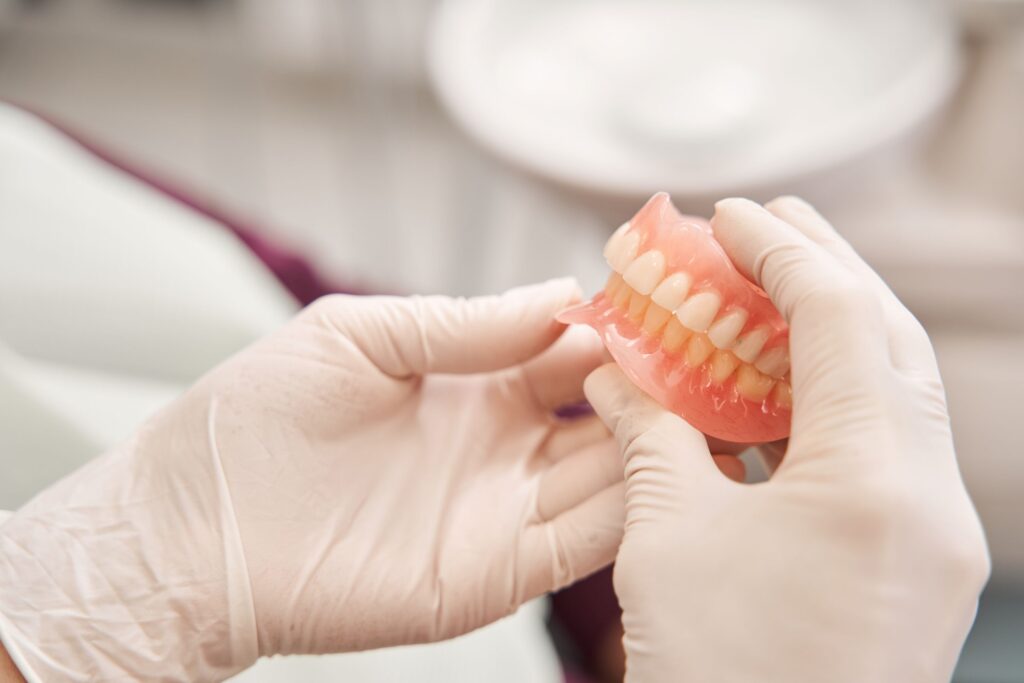
Regardless of how many teeth you have remaining, dentures are a versatile solution that can simultaneously restore your smile’s appearance and functionality. This tried-and-true solution allows you to enjoy meals and conversations without feeling self-conscious about your abilities or the way you look.
Although they can potentially last many years, you’ll likely need to have your dentures replaced at some point. If you’ve had your prosthetics for several years already and are unsure whether you need new ones, continue reading to learn three signs that it’s time!
Indicator #1: They Feel Loose
Did you know that your jawbone starts thinning after you lose permanent teeth? The roots of your teeth stimulate new bone growth in your jaw every time you bite down, but when one or more go missing, it starts losing density.
This can negatively affect your dentures because they rely on a tight fit to remain firmly in your mouth all day, and the changes to your jaw can destabilize them. They may start to wiggle in place or fall out at an inopportune time, like when you’re eating or speaking.
Denture adhesives can help temporarily, but eventually, you’ll need to have your prosthetics relined or recreated altogether.
Indicator #2: They’re Damaged
One of the first things that other people notice about you is the quality of your grin, and if yours is full of flaws, you might not make a good impression. Your restoration is customized at every stage of creation to look as much like natural teeth and gums as possible to boost your confidence in your appearance. However, after years of daily usage, they may look more worn down, discolored, or dinged up.
If the current condition of your dentures makes you feel self-conscious about your reflection, it may be worth investing in new ones.
Indicator #3: They’re Uncomfortable
When your restoration is new, it’s normal to develop some aches and inflammation until your mouth adjusts to the added pressure against your gums and bony ridges. Thankfully, this tenderness usually resolves itself as your connective tissues become acclimated over the first few weeks.
If your prosthetics are older and you’ve noticed that your gums, jaw, neck, shoulder, or back are hurting, then it could be due to ill-fitting dentures. If your muscles work overtime to try to hold them in place, the added tension can leave them aching or swollen. Plus, the acrylic base of your dentures can rub sore spots along your gums that can become painfully infected if left unaddressed.
If you’re experiencing any of these symptoms, it’s time to schedule an appointment with your dentist!
About the Author
Dr. Albert Kim has 10+ years of experience helping people build and maintain strong, healthy smiles. He earned his Doctor of Dental Surgery from the New York University College of Dentistry in 2013 then opened this practice in 2018 to provide affordable, quality dental care to families in the area. He prioritizes patient comfort and offers amenities like warm blankets, a beverage bar, and minimal wait times to help you feel relaxed throughout your visit. Then, he combines a caring approach with state-of-the-art technology to deliver accurate treatment results. If you need new dentures, you can request an appointment on the website or call (832) 220-9324.
